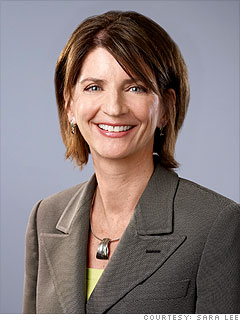In the ever-evolving landscape of American politics, corporate leaders are increasingly finding themselves at odds with political figures. The recent developments have shown a significant shift in the stance of Fortune 500 CEOs towards the former President Donald Trump. This movement marks a turning point in how corporate America engages with political entities, reflecting broader societal shifts and economic concerns.
As tensions rise over trade policies and economic strategies, Fortune 500 CEOs are uniting to voice their concerns. This unprecedented alignment among top business executives signals a potential reevaluation of the relationship between corporate interests and political leadership. Their collective opposition highlights critical issues that extend beyond mere political affiliations, impacting national and global economies significantly.
A New Era of Corporate Activism
The surge in stock market gains following a temporary pause in tariffs by Donald Trump against most nations, except China, indicates the volatile nature of international trade relations. The decision to raise tariffs to 125% initially caused market fluctuations, but the subsequent 90-day pause sparked a significant market recovery, reminiscent of post-World War II economic conditions. This dramatic response underscores the importance of stable trade policies for maintaining investor confidence and economic stability.
Beyond immediate market reactions, this event reveals deeper concerns among Fortune 500 CEOs regarding the reliability of current trade strategies. As they navigate these turbulent waters, trust in consistent and predictable policies becomes paramount. The challenge lies not only in rebuilding trust with trading partners but also in ensuring domestic stakeholders remain confident in the economic direction set by political leaders.
This period serves as a crucial moment for corporate activism, where businesses must balance profit motives with ethical considerations and long-term sustainability. By engaging more actively in policy discussions, Fortune 500 companies aim to influence decisions that directly impact their operations and the broader economy.
Redefining Leadership and Trust
Trust erosion among Fortune 500 CEOs concerning Trump's administration stems from perceived inconsistencies in communication and policy implementation. A notable Fortune 500 CEO attending a Business Roundtable meeting expressed skepticism about the reliability of statements made during such engagements. Such sentiments reflect growing unease within the business community regarding the effectiveness and integrity of current trade negotiations.
Besides trade concerns, other pressing matters include censorship allegations involving tech giants like Meta, which further complicate relationships between corporations and government entities. These issues highlight the multifaceted challenges faced by today’s business leaders, who must address both operational and reputational risks simultaneously.
Unilever’s new CEO exemplifies a forward-thinking approach, emphasizing sustainable practices and ethical governance. Such leadership models could inspire others to adopt similar strategies, fostering an environment where corporate responsibility aligns with public interest and contributes positively to societal well-being.
Economic Disparities and Policy Reforms
A report by Accountable.US and Americans for Tax Fairness exposes significant disparities in benefit distribution resulting from Trump-era corporate tax cuts. Notably, a small group of top corporations, including tech giants Apple and Microsoft, disproportionately benefited from these reforms while contributing minimally to federal revenues through taxes paid. This revelation calls into question the fairness and efficacy of such fiscal measures.
With portions of these tax benefits set to expire in 2025, there is increasing pressure on policymakers to reassess and potentially reform existing tax structures. Addressing these inequities requires comprehensive evaluations of how tax policies affect various sectors differently and whether adjustments can promote equitable growth across all segments of the economy.
Fortune 500 CEOs' reluctance to support Trump financially ahead of the 2024 elections signifies shifting priorities within corporate circles. While historical leanings might suggest otherwise, current dynamics indicate a departure from traditional alliances, driven by pragmatic assessments of what best serves corporate interests amidst evolving socio-political landscapes.
Predictions of Growing Dissent
NYU Professor Scott Galloway anticipates increased vocal opposition from Fortune 500 CEOs and senior Republicans against Trump's trade policies. His analysis suggests that mounting economic pressures and public dissatisfaction will compel influential figures within both corporate and political spheres to articulate their disapproval openly. Such actions represent a pivotal moment in contemporary U.S. politics, illustrating how economic realities can drive changes in established power dynamics.
Galloway's predictions resonate with observations of Republican lawmakers facing intense criticism during town halls, underscoring widespread discontent among constituents over current trade strategies. This feedback loop between grassroots movements and elite decision-makers reinforces the interconnectedness of different societal levels when addressing complex economic issues.
Ultimately, the convergence of corporate activism, economic scrutiny, and political dissent paints a picture of transformation within American society. As Fortune 500 CEOs unite to oppose certain aspects of Trump's agenda, they contribute to reshaping dialogues around trade, taxation, and governance, influencing future directions for national policy-making processes.

